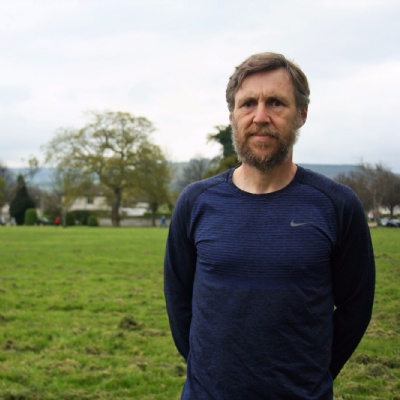A Peacemaker’s Journey from UWC to the Frontlines of Conflict

Michael Semple (UWC Atlantic College, 1979-1981) has worked in the public sphere for over 30 years, with extensive experience in government, the voluntary sector and academia. In his current position as a visiting research professor at Queen’s University, Belfast, he has been able to culminate these experiences to respond to international conflict, by working with policy makers within the government to establish significant approaches to peace. His interest in peacemaking politics stems from his time at UWC Atlantic College, which “had a lasting influence and helped set me on the path that became this career.”
After graduating from UWC Atlantic College, Michael went on to receive a Bachelor’s degree in Economics from Sussex University, as well as a Master’s degree in Economics from Oxford. In addition, he was also awarded a Honoris Causa Doctorate from Sussex University, in recognition of his work on peace dialogue. Shifting from a possible career in economics to one filled with integral peace work happened naturally for him, as he notes: “Some people make a very deliberate career choice. In contrast, I am one of those people whose careers have grown organically.” His work in the Middle East with organisations such as Oxfam, the United Nations, the British High Commission and the European Union has allowed him to develop this interest in policy making towards creating more prominent standards for peace in the area. “Over the years, I have built up an expertise on South Asia and on the Islamist movements,” says Michael. “My work as an official and subsequently as a researcher and policy adviser, has flown from that. I spend a lot of my time trying to understand and explain what is going on in the world. I also want to play my part in making it a bit better. Over the years, I realised that many of the challenges we face require a collective effort that only governments can mobilise. My work in government and alongside government as an adviser and intermediary has always been about the search for practical solutions to make the world a bit safer, more peaceful, better."
He continues, “In my work, government is a means to achieve, rather than the end in itself. But, even if government is not really my first love, understanding how government work is vitally important and interesting in itself. I have never stopped to wonder what makes me passionate about work in politics and government. It is just what I do.”
Whether it has been working as a part of the team tasked with bringing about lasting peace following the fall of the Taliban in Afghanistan, being involved as an official with the United Nations and the European Union regarding peacebuilding in the Middle East, or spending time as a human rights advisor to the British High Commission in Pakistan, Michael’s time at UWC has always played a significant role in the way he approaches his work in political affairs, and continues to reflect the passion he has towards creating peace. “If you can think of me as a radical, who uses the tools of government to promote peace, then it was UWC that radicalised me. For three, going on four decades, I have felt part of a global community sharing noble intent and a willingness to cooperate and work practically. Much of the time that is just a feeling, but it is great when I find myself interacting with UWC friends around the world – and trying to rope them into what I do. And of course, UWC is not just about going around trying to do good. These days, when not doing research and policy advice, I run marathons and paddle my kayak. The UWC combination of outdoor pursuits with academic challenge helped me develop the habits of a lifetime. In my work, I require a lot of mental stamina. I suspect that the stamina I deploy today was first developed while tramping up and down the steps between St. Donat’s Castle and the seafront.”
